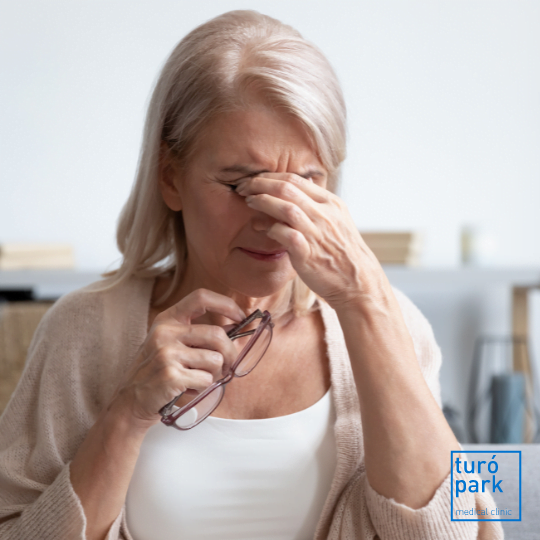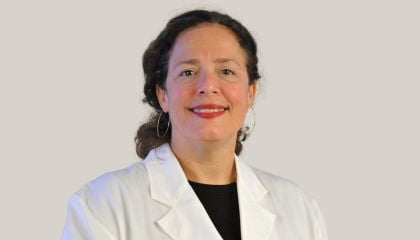Do you suffer from dry eyes and are looking for a specialist ophthalmologist for help in Barcelona?
Dry eyes is a particularly common ophthalmological condition, especially in the elderly. It causes significant discomfort and sometimes leads to corneal complications or chronic irritation of the eye.
If you suffer from dry eye syndrome, do not wait to make an appointment with one of our English-speaking ophthalmologists in Barcelona. After a thorough examination, they will propose a personalised treatment plan so that you can regain your visual comfort.
What are dry eyes?
Dry eyes is when the quantity and/or quality of a person's tears is insufficient, resulting in symptoms such as stinging, sandy eyes or stuck eyelids.
There are two types of dry eyes:
- Aqueous dryness related to insufficient tear production
- Lipidic dryness linked to an excess of lacrimal evaporation.
These two forms of dry eye can also coexist.
Fast track your treatment
To book an appointment or speak with one of our friendly team, please get in touch using the options below.

What are the symptoms of dry eyes?
Not all patients experience dry eyes in the same way. The most common symptoms include:
- Stinging sensations,
- Sensitivity to light, wind or cigarette smoke,
- Burning or foreign body sensation in the eyes,
- Recurrent eye strain,
- A lack of tears in normal situations (peeling onions, strong emotions, etc),
- The sensation of seeing less well,
- Difficulty in wearing contact lenses.
On the other hand, it can happen that a person has the sensation of having dry eyes when the secretion of tears is normal. This usually happens when your eyes are overworked or exposed to irritating products. If in doubt, consult your ophthalmologist.
Dry eyes: the most common causes
The main cause of dry eyes is ageing. About 15% of people over 60 years of age are thought to suffer from dry eye.
However, there are other risk factors such as:
- Menopause,
- Wearing unsuitable contact lenses,
- Prolonged use of a computer,
- Dry or air-conditioned air,
- Pollution,
- Smoking,
- Medication such as certain antidepressants, neuroleptics, antihypertensives, analgesics, sleeping pills, antihistamines, as well as hormone treatments,
- Certain autoimmune diseases such as Gougerot-Sjögren's syndrome, lupus, or rheumatoid arthritis, for example.
See life in colour!
Protect your eyes and avoid eye problems with professional care from Turó Park Clinics.

What to do in case of dry eyes?
If you suffer from one or more dry eye symptoms, make an appointment with an ophthalmologist for a thorough examination.
After a thorough clinical examination, the doctor can prescribe various tests to assess the quality and quantity of the tear film:
- Slit lamp examination to analyse the height of the tear meniscus
- The Schirmer test to measure tear function.
- Break-up time (BUT) to analyse the stability of the tear film using a dye called fluorescein.
Treatment of dry eyes at Turó Park Medical Clinic
The treatment of dry eye obviously depends on the cause, but in all cases it is essential to eliminate or reduce the factors that cause dry eye: avoid air conditioning, limit the wearing of contact lenses, take regular breaks from screens, and remember to blink. Discontinuation of the drugs involved should be considered when possible.
The use of eye drops or artificial tears is also often recommended in order to hydrate the surface of the eye and relieve the symptoms (itching, irritation, sensation of a foreign body).
Anti-inflammatory treatment may also be offered to treat the underlying inflammation maintained by the dryness.
When accompanied by blepharitis or ocular rosacea, the doctor may prescribe an oral antibiotic treatment based on tetracyclines.
Finally, in certain cases, the ophthalmologist may suggest placing silicone tear plugs on the tear points to limit the evacuation of tears.
Our team of English-speaking ophthalmologists

